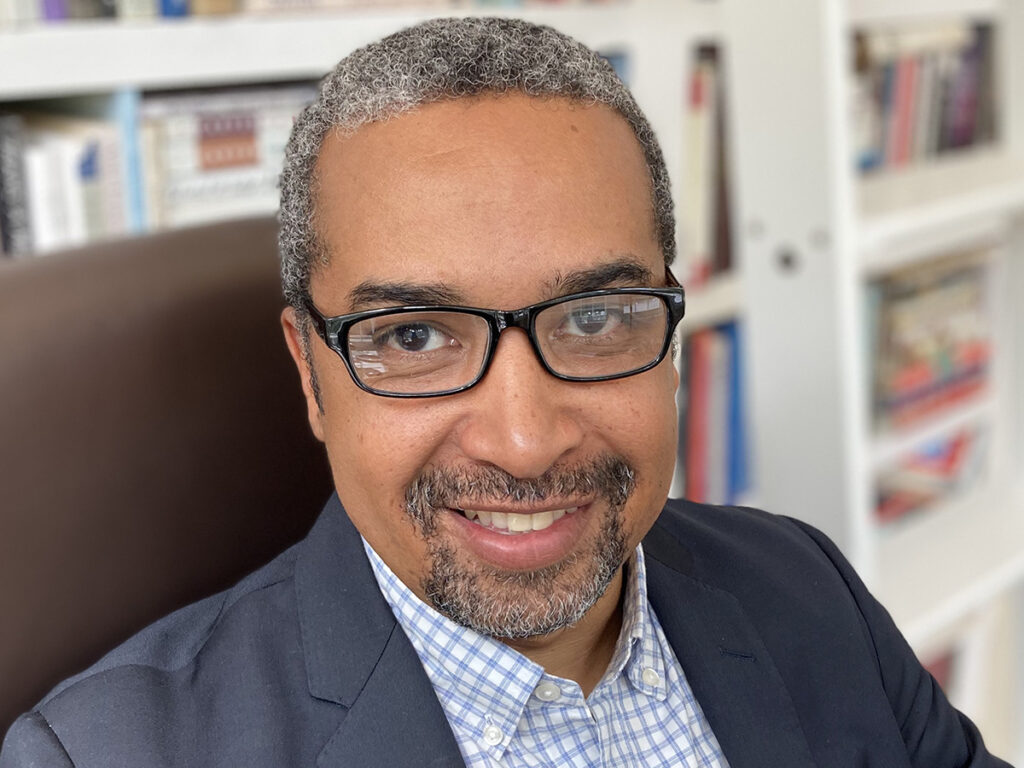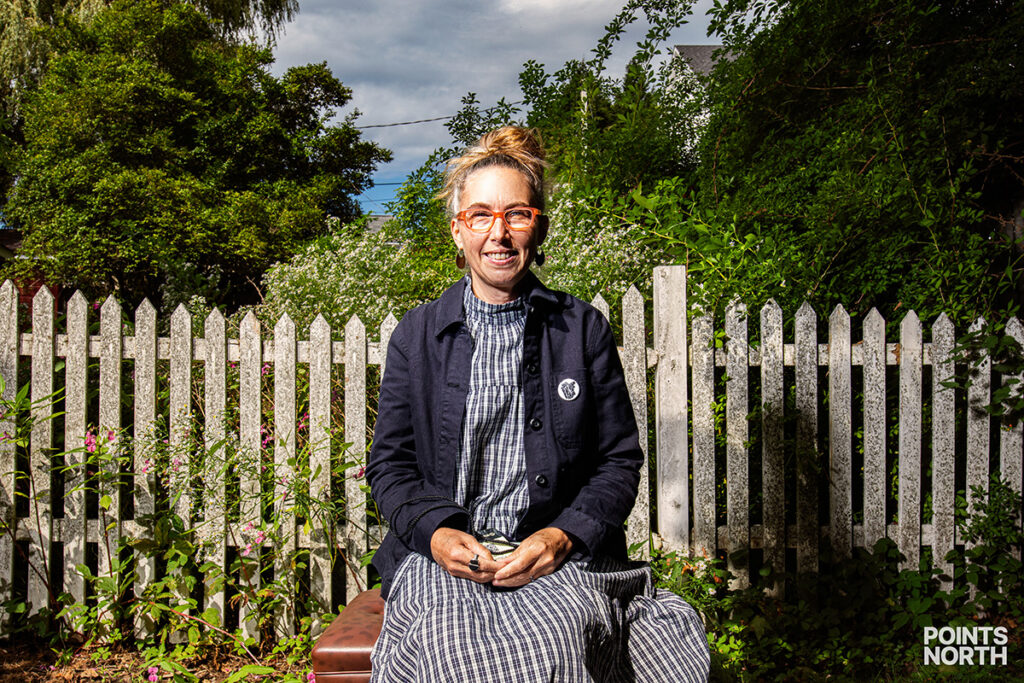Two Professors Awarded Guggenheim Fellowships in Writing, Film

Emerson professors Jerald Walker and Kathryn Ramey were named 2022 Guggenheim Fellows, joining just 184 artists, scholars, writers, and scientists out of nearly 3,000 applicants to receive the prestigious grants.
Awarded by the John Simon Guggenheim Foundation, the Fellowships recognize and support “exceptional individuals in pursuit of scholarship in any field of knowledge and creation in any art form, under the freest possible conditions.”
“I am thrilled to announce this new group of Guggenheim Fellows,” Foundation President Edward Hirsch said in a statement. “A Guggenheim Fellowship has always been meaningful, but this year we know it will be a lifeline for many of the new Fellows at a time of great hardship, a survival tool as well as a creative one. The work supported by the Fellowship will help us understand more deeply what we are enduring individually and collectively, and it is an honor for the Foundation to help the Fellows do what they were meant to do.”
Walker, a professor in the Writing, Literature and Publishing (WLP) department, was selected in the General Nonfiction category. He said he plans to use his fellowship year to work on his next essay collection, under contract with HarperCollins.
“I am absolutely delighted and honored to be the recipient of a 2022 Guggenheim Fellowship, and I’m grateful to work at an institution where the administration is so extraordinarily supportive of faculty research and creative work,” Walker said.
Walker’s most recent book, How to Make a Slave and Other Essays, was a finalist for the 2020 National Book Award in Nonfiction and winner of the 2020 Massachusetts Book Award in Nonfiction.
His memoir, Street Shadows: A Memoir of Race, Rebellion and Redemption, won the 2011 PEN New England/L.L. Winship Award for Nonfiction and was named a Best Memoir of the Year by Kirkus Reviews. He has received previous fellowships from the James Michener Foundation and the National Endowment for the Arts. He is also the author of The World in Flames: A Black Boyhood in a White Supremacist Doomsday Cult, and has published in magazines such as Creative Nonfiction, The Missouri Review, The Harvard Review, Mother Jones, The Iowa Review, and The Oxford American. His work has been widely anthologized, including five times in The Best American Essays.
Read: Walker on Writing Essays, Receiving Rejection, and Looking for Humor Everywhere

Ramey will use her Guggenheim year to finish and exhibit her film, El Signo Vacío (The Empty Sign), about the 124-year-and-counting U.S. occupation of Puerto Rico, as well as develop new projects in the series, part of Alchemies of Anti-Colonial Cinema Practice.
“Drawing on anthropology of tourism, emerging scholarship on artist and anthropologist actions, and various repatriation efforts Alchemies of Anti-Colonial Cinema Practice is a multi-sited experimental ethnographic art and film project spanning several years of research and production,” Ramey says.
The project incorporates different modes of presentation and exhibition, including gallery and museum installations, a feature film, and an artist book, and is accompanied by interviews and images made with contemporary citizens reflecting upon a variety of issues, from indigenous vs. invasive plant species, contemporary colonialism and the film process itself.
“Through artisanal film processing, my work interrogates, ritually re-imagines, and re-presents images made by and for the colonizer about the lands and peoples they have colonized. Alchemies of Anti-Colonial Cinema Practice acknowledges the role the individual consumer/traveler plays in the colonial process and calls on the viewer to de-colonize themselves,” she said.
Ramey teaches in the Visual and Media Arts (VMA) department, and studies the social history of the avant-garde film community, the anthropology of visual communication, and the intersection between avant-garde and ethnographic film and art practices. She is the recipient numerous grants and fellowships, including Creative Capital, Yaddo Artist Colony, the Marble House Residency, the Social Science Research Council on the Arts fellowship, the LEF New England Moving Image Grant, and the Pennsylvania Council on the Arts Fellowship.
Her films have screened at film festivals and venues around the world, including the Toronto Film Festival, MadCat Women’s Film Festival, Ann Arbor Film Festival, L’Alternative Barcelona, 25fps Experimental Film Festival in Zagreb, Croatia, and the National Museum of Women in the Arts in Washington DC. Ramey’s articles have been published in Visual Anthropology Review, JumpCut, and The Independent, as well as anthologies, including Women’s Experimental Cinema, Made to Be Seen: Perspectives on the History of Visual Anthropology, Anthropology and Art Practice, and Experimental Film and Anthropology. Her book, Experimental Filmmaking: BREAK THE MACHINE, is “an experimental ethnography on the contemporary experimental film scene masquerading as a textbook on experimental film techniques written in the voice of a zine.”
Read: Professor’s Film on Occupation of Puerto Rico Wins Creative Capital Funding
Among previous Emerson Guggenheim fellows are WLP Professor Jabari Asim, selected in 2009 for General Nonfiction; WLP Professor Emeritus Pablo Medina, who was selected in the Poetry category in 2012, and alumnae Elaine McMillion Sheldon, MFA ’13, a documentary filmmaker selected in 2020, and poet Denise Duhamel ’84, selected in 2014,
Categories